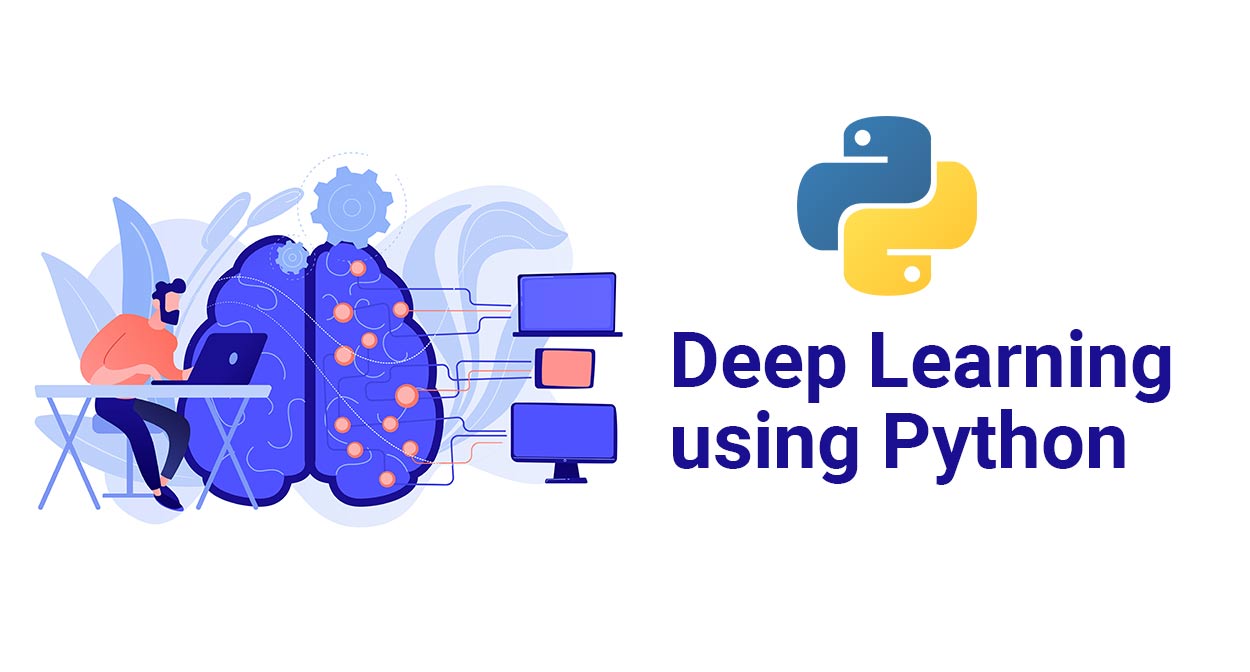Data Science Dojo has launched Jupyter Hub for Deep Learning using Python offering to the Azure Marketplace with pre-installed Deep Learning libraries and pre-cloned GitHub repositories of famous Deep Learning books and collections which enables the learner to run the example codes provided.
What is Deep Learning?
Deep learning is a subfield of machine learning and artificial intelligence (AI) that mimics how people gain specific types of knowledge. Deep learning algorithms are incredibly complex and the structure of these algorithms, where each neuron is connected to the other and transmits information, is quite similar to that of the nervous system.
Also, there are different types of neural networks to address specific problems or datasets, for example, Convolutional neural networks (CNNs) and Recurrent neural networks (RNNs).
While in the field of Data Science, which also encompasses statistics and predictive modeling, deep learning contains a key component. This procedure is made quicker and easier by deep learning, which is highly helpful for data scientists who are tasked with gathering, processing, and interpreting vast amounts of data.
Deep Learning using Python
Python, a high-level programming language that was created in 1991 and has seen a rise in popularity, is compatible with deep learning, which has contributed to its development. While several languages, including C++, Java, and LISP, can be used with deep learning, Python continues to be the preferred option for millions of developers worldwide.
Additionally, data is the essential component in all deep learning algorithms and applications, both as training data and as input. Python is a great tool to employ for managing large volumes of data for training your deep learning system, inputting input, or even making sense of its output because it is primarily used for data management, processing, and forecasting.
PRO TIP: Join our 5-day instructor-led Python for Data Science training to enhance your deep learning skills.
Challenges for individuals
Individuals who want to upgrade their path from Machine Learning to Deep Learning and want to start with it usually lack the resources to gain hands-on experience with Deep Learning. A beginner in Deep Learning also faces compatibility issues while installing libraries.
What we provide
Jupyter Hub for Deep Learning using Python solves all the challenges by providing you with an effortless coding environment in the cloud with pre-installed Deep Learning Python libraries which reduces the burden of installation and maintenance of tasks hence solving the compatibility issues for an individual.
Moreover, this offer provides the user with repositories of famous authors and books on Deep Learning which contain chapter-wise notebooks with some exercises that serve as a learning resource for a user in gaining hands-on experience with Deep Learning.
The heavy computations required for Deep Learning applications are not performed on the user’s local machine. Instead, they are performed in the Azure cloud, which increases responsiveness and processing speed.
Listed below are the pre-installed Python libraries related to Deep learning and the sources of repositories of Deep Learning books provided by this offer:
Python libraries:
- NumPy
- Matplotlib
- Pandas
- Seaborn
- TensorFlow
- Tflearn
- PyTorch
- Keras
- Scikit Learn
- Lasagne
- Leather
- Theano
- D2L
- OpenCV
Repositories:
- GitHub repository of book Deep Learning with Python 2nd Edition, by author François Chollet.
- GitHub repository of book Hands-on Deep Learning Algorithms with Python, by author Sudharsan Ravichandran.
- GitHub repository of book Hands-on Machine Learning with Scikit-Learn, Keras, and TensorFlow, by author Geron Aurelien.
- GitHub repository of collection on Deep Learning Models, by author Sebastian Raschka.
Conclusion:
Jupyter Hub for Deep Learning using Python provides an in-browser coding environment with just a single click, hence providing ease of installation. Through this offer, a user can work on a variety of Deep Learning applications self-driving cars, healthcare, fraud detection, language translations, auto-completion of sentences, photo descriptions, image coloring and captioning, object detection, and localization.
This Jupyter Hub for Deep Learning instance is ideal to learn more about Deep Learning without the need to worry about configurations and computing resources.
The heavy resource requirement to deal with large datasets and perform the extensive model training and analysis for these applications is no longer an issue as heavy computations are now performed on Microsoft Azure which increases processing speed.
At Data Science Dojo, we deliver data science education, consulting, and technical services to increase the power of data.
We are therefore adding a free Jupyter Notebook Environment dedicated specifically to Deep Learning using Python. Install the Jupyter Hub offer now from the Azure Marketplace, your ideal companion in your journey to learn data science!



